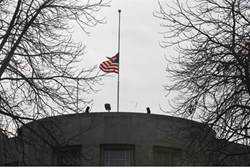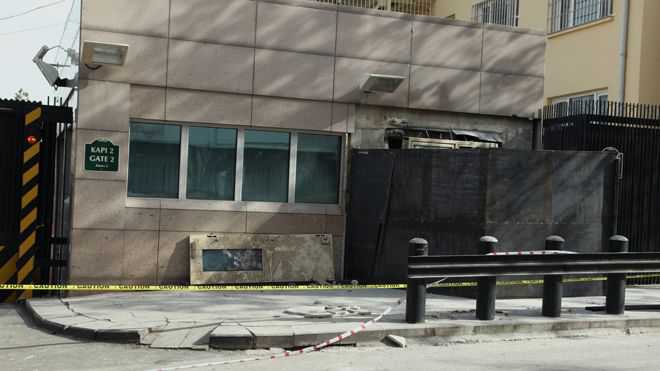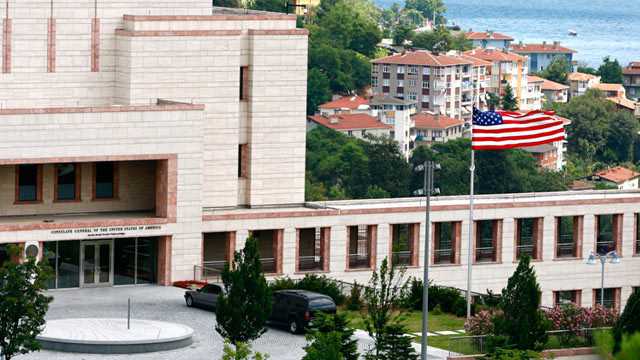By Al Arabiya with agencies
Syria’s President Bashar al-Assad (L) meets with Turkish Foreign Minister Ahmet Davutoglu in Damascus August 9, 2011. Assad had said his forces would continue to pursue “terrorist groups” (Reuters)
A letter attacking Turkey’s “destructive” role in the Syrian conflict has been sent from President Bashar al-Assad’s regime to the United Nations on Friday, according to Syrian state media.
The Syrian foreign ministry’s letter accuses Turkey of harboring “terrorists from Al-Qaeda’s network”, the SANA news agency said.
The ministry also accused Ankara of taking “increasingly hostile stances towards Syria, by blockin. measures taken by Damascus for a political solution to the crisis” that the U.N. says has left some 70,000 people dead.
The letter, published by SANA, also criticizes Turkey for “pressuring Syrian opposition members to refuse a political plan” proposed in a speech Assad on January 9.
Assad in the rare speech offered negotiations to end the conflict but only to opposition groups with no links to rebels the regime considers to be “terrorists.”
The proposal was rejected by Western and Arab countries, as well as by Turkey and the Syrian opposition, including dissident groups tolerated by Assad’s regime.
“Turkey supports and publicly justifies terrorist, destructive acts” against Syria, said the ministry in letters addressed to the U.N. Security Council and to Secretary General Ban Ki-moon.
“Turkey has turned its territory into camps used to house, train, finance and infiltrate armed terrorist groups, chief among them the Al-Qaeda network and the Al-Nusra Front,” said the letter.
Strike back
Earlier on Friday, Turkish artillery struck back after a shell fired from neighboring Syria ploughed into Turkish territory without causing any casualties, the state-run news agency reported.
The shell fell near the town of Yayladag in Hatay province near the border with Syria and Turkish forces retaliated immediately, Anatolia said.
Since Syrian fire killed five Turks on October 3, Turkey has systematically retaliated to every cross-border shelling.
Key opposition backer Turkey early in the revolt against Assad broke ties with Damascus and has led international calls for his ouster.
Some 200,000 Syrian refugees have fled the conflict in their country for Turkey, many of them living in insalubrious camps.
Assad’s regime views dissidents and insurgents as foreign-backed “terrorists” whose aim is to destroy Syria.
Al-Nusra Front, which the United States says has links to Al-Qaeda, has been listed by Washington as a “terrorist” organization.
Its jihadists have claimed responsibility for most suicide bombings that have shaken Syria in the spiraling conflict.
Violence continues
Syria’s rebels captured a military airbase in the northern province of Aleppo on Friday and geared for a major battle against loyalist forces for control of two nearby strategic airports, a watchdog said.
The rebels, from the Islamist Al-Nusra Front and the Muhajireen battalion, overran the base in Sfeira, east of Aleppo international airport, and captured a large stockpile of ammunition, the Syrian Observatory for Human Rights said.
The Britain-based watchdog also reported intermittent clashes around Aleppo international airport itself as well as around Nayrab airbase and another military complex, as the two sides squared up for a major fight.
“The army shelled the area around Aleppo international airport and Nayrab air base on Friday morning, while rebels used home-made rockets to shell Nayrab,” Observatory director Rami Abdel Rahman said.
“The army is preparing a large-scale operation to take back control of Base 80,” he added of a military complex tasked with managing both Nayrab and Aleppo airports.
Rebels seized the base on Wednesday after a battle that left at least 150 dead from both sides, among them senior army officers, said the Observatory.
Insurgents fighting President Bashar al-Assad’s regime “are trying to take control of Nayrab and to destroy the runways at Aleppo international airport, which the army is using for military purposes,” Abdel Rahman said.
Activists in Aleppo have said the rebel Free Syrian Army shifted its focus weeks ago from the city to airbases in the province.
Insurgents see the capture of airports such as Al-Jarrah, also in Aleppo province, on Tuesday as a way of seizing large amounts of ammunition and to put out of action warplanes used by the regime to bombard rebel-held areas.
Regime tanks, meanwhile, shelled the town of Khan Sheikhun in the province of Idlib, killing at least 11 civilians, said the Observatory.
In Damascus, the army shelled the eastern district of Jobar, where rebels have set up enclaves, the Britain-based group said.
See here what is left of Assad’s regime: The Lion’s Den
via Damascus letter accuses Turkey of harboring al-Qaeda terrorists.
 As a result of a February raid in Istanbul and the northeastern city of Corlu, police had arrested 12 people, including eight Turks, two Azeris and two Chechens, and seized 22 kilograms of explosives, CNNTurk reported.
As a result of a February raid in Istanbul and the northeastern city of Corlu, police had arrested 12 people, including eight Turks, two Azeris and two Chechens, and seized 22 kilograms of explosives, CNNTurk reported.




